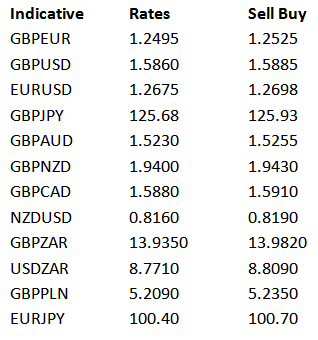Investing.com’s stocks of the week
The IMF met with Europe’s finance ministers in Brussels yesterday to iron out the kinks in the Greek debt reduction proposal. As expected, there were a few areas where the two parties didn’t meet eye to eye. Ms. Lagarde was adamant that the original forecast of sustaining Greek debt at 120% by 2020 was still the benchmark to work towards. Mr. Juncker, the chair of the finance ministers, pushed for a 2-year extension until 2022. I struggle to see how a figure cast in March can still be attainable given all that has happened in the past few months with Greece.
The pair also failed to read from the same page regarding current estimates of Greek growth, making it hard to value the burden of Greek debt going forward. The Troika report made it clear that Greece should be afforded more time to reach its shorter term targets; thankfully both parties agreed and a two year extension until 2016 was granted.
Extending targets comes at a cost and both sides were reluctant to pick up the cheque, a further point of contention between the two parties. It became apparent that more time was needed to agree upon the right course of action for Greece. The much needed 31.5 billion tranche of the Greek bailout will remain under lock and key for the time being.
Veteran’s day yesterday in the US ensured a quiet day all around, GBP/EUR and GBP/USD both traded within a 50 pip range and offered little in the way of excitement. There will be a keen eye cast on UK inflation this morning. In the past month we have seen an increase in gas and electricity prices along with food price inflation. A higher than expected figure will limit the power of the BoE in the short-term and see cable fall lower pushing the 1.5850 support level.
Inflation figures for Spain, Italy and Portugal are due as well with German ZEW survey a keen indicator as to the level of economic conditions in Germany.

The pair also failed to read from the same page regarding current estimates of Greek growth, making it hard to value the burden of Greek debt going forward. The Troika report made it clear that Greece should be afforded more time to reach its shorter term targets; thankfully both parties agreed and a two year extension until 2016 was granted.
Extending targets comes at a cost and both sides were reluctant to pick up the cheque, a further point of contention between the two parties. It became apparent that more time was needed to agree upon the right course of action for Greece. The much needed 31.5 billion tranche of the Greek bailout will remain under lock and key for the time being.
Veteran’s day yesterday in the US ensured a quiet day all around, GBP/EUR and GBP/USD both traded within a 50 pip range and offered little in the way of excitement. There will be a keen eye cast on UK inflation this morning. In the past month we have seen an increase in gas and electricity prices along with food price inflation. A higher than expected figure will limit the power of the BoE in the short-term and see cable fall lower pushing the 1.5850 support level.
Inflation figures for Spain, Italy and Portugal are due as well with German ZEW survey a keen indicator as to the level of economic conditions in Germany.

